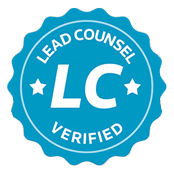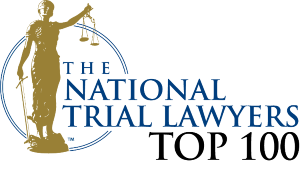Being in a car accident can be a traumatic and life-changing experience. If you suffer a neck injury from the impact, you may be wondering what to expect in the aftermath and how to get your life back on track. This in-depth article provides an overview of common neck injuries in car crashes, what to expect in the recovery process, tips for managing your injury, seeking assistance if you need help with medical bills or legal action, and how to help prevent reinjury.
Common Neck Injuries Sustained in Auto Accidents
The sudden jolt of a collision can cause serious damage to the muscles, joints, discs and nerves in the neck. Some common neck injuries include:
Whiplash – This is one of the most common neck injuries, resulting from the head being jerked back and forth. It can stretch or tear soft tissues like muscles, tendons and ligaments in the neck, leading to pain, stiffness, and reduced range of motion. Symptoms may appear immediately or can take days or weeks to fully develop.
Herniated discs – Discs act as cushions between the vertebrae in the spine. In a crash, the force can cause discs to rupture or herniate, pushing into the spinal canal and pinching or pressing on nerves. This can cause severe neck pain, numbness/tingling, and weakness in the arms and hands.
Spinal cord injury – In severe crashes, vertebrae can shift out of place or fracture, putting dangerous pressure on the spinal cord. This can impair signals between the brain and body, potentially causing temporary or permanent paralysis below the point of injury.
Traumatic brain injury – The sudden whiplash motion of the head can result in brain trauma, such as bruising, bleeding or swelling inside the skull. This can create cognitive problems, like memory loss, confusion, difficulty concentrating, blurred vision, dizziness or loss of consciousness.
Cervical spine fractures – The cervical spine in the neck contains 7 small vertebrae. Fractures can occur from hyperextension or compression forces. Pieces of bone can shift dangerously or pinch the spinal cord.
Soft tissue injuries – Ligaments, muscles or nerves in the neck can become inflamed, stretched or pinched. This can cause localized pain, spasms, headaches, tingling/weakness in the arms, and reduced mobility.
The extent of neck injuries depends on factors like the force and angle of impact, head position at the time of crash, types of restraints used, and preexisting conditions. Even low-speed rear impacts can cause whiplash and other serious issues.
What to Expect After a Neck Injury Car Accident
Recovering from a neck injury can be a slow process that requires patience. Here’s what you may experience:
Pain and stiffness – Neck pain is very common immediately after an accident as injured areas swell. Muscle spasms and inflammation around damaged tissues can cause headaches that may last for weeks or longer.
Reduced mobility – Looking left and right or up and down may be difficult initially. Damaged vertebrae, discs, or nerves need time to heal and may have limited range of motion during recovery. Your doctor may recommend wearing a soft cervical collar to stabilize the neck temporarily.
Arm and hand numbness – If nerves are pinched or irritated, you may feel numbness, tingling or weakness in the shoulders, arms or fingers. This often improves over time as swelling decreases, but some nerve damage could be permanent.
Headaches – Head and neck trauma can trigger headaches like migraines. Post-accident headaches may start mildly but worsen over the first few days. Medications can help, but seek medical advice if headaches persist.
Dizziness – The whiplash motion can injure structures in the neck that affect balance and coordination, causing dizziness, vertigo or light-headedness. This should improve as tissues heal.
Memory and concentration issues – A neck injury, like whiplash, is linked with cognitive dysfunction from concussion. You may experience memory issues or difficulty focusing while your brain heals.
Sleep difficulties – It’s very common to have trouble sleeping with neck pain. Find positions that take pressure off sore areas. Your doctor may suggest medication to improve sleep.
Mood changes – Don’t be surprised if you feel more irritable, anxious or depressed while coping with injury. Improving mood typically involves therapy, relaxation skills, social support and medication if needed.
Full recovery times vary widely from weeks to months depending on injury severity. Work closely with your healthcare providers for appropriate treatment and take it slow. Pushing yourself too hard could reinjure healing tissues.
Seeking Medical Care and Legal Assistance After a Neck Injury
Here are some tips if your car accident neck injury requires professional help:
Seek prompt medical attention – Even if you don’t think you’re seriously injured, get examined by a doctor to identify all issues and get appropriate treatment. Missed neck injuries can worsen over time.
Work with your doctors for a treatment plan – This may include rest, OTC or prescription medications, injections, physical therapy, surgery, orthopedic devices and referrals to specialists. Follow all recommendations closely.
Talk to your insurance provider – Notify your auto insurance company about the accident and injuries. They will advise you on the claims process and coverage for medical bills and lost wages. Uninsured losses may be paid from your own policy.
Consult a personal injury attorney – If your expenses and losses exceed what insurance covers, an attorney can help you seek compensation through a lawsuit. They also deal with complex legal processes while you focus on recovery.
Keep detailed records – Document symptoms thoroughly along with all medical expenses, lost income, medication costs and collision details. This creates a paper trail for insurance claims and lawsuits.
Understand the legal process – Most injury cases settle out of court, but complex cases with high damages might go to trial. Your lawyer will walk you through each step so you know what to expect.
Consider your long-term needs – Severe injuries may necessitate extended medical care, orthopedic devices, home healthcare, wheelchair accessible vehicles, home modifications and other expenses. Keep these in mind when seeking compensation.
Stay focused on your health – Don’t let legal matters distract you from following your treatment plans. Make your health and safety the number one priority, before settlements or court dates.
Be patient – It takes time to properly diagnose and treat injuries, recover function, meet with attorneys, negotiate fair settlements, and litigate court cases if necessary. The legal process often moves slowly. Stay positive.
Suffering any injury in a motor vehicle accident is difficult. Focus on taking care of your neck and being patient with the recovery process. With proper rest, treatment and support, most people heal well from even serious neck injuries over time. If you require assistance, don’t hesitate to ask for help.
If you have received a neck injury from a car accident, you can visit our offices at:
- Beverly Hills – 8383 Wilshire Blvd, Suite 830, Beverly Hills, CA 90211
- Los Angeles – 212 East Pico Blvd, Suite #4, Los Angeles, CA 90015
- Tulare – 100 E. Cross, Suite #122, Tulare, CA 93274
- Hanford – 13400 Hanford Armona Rd, Suite #B
Or call now for a free consultation on (877) 729-2652 or (323) 782-9927.














